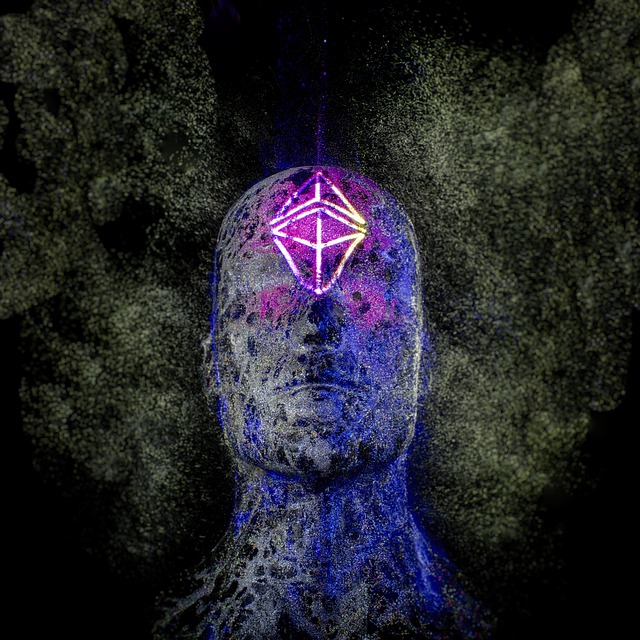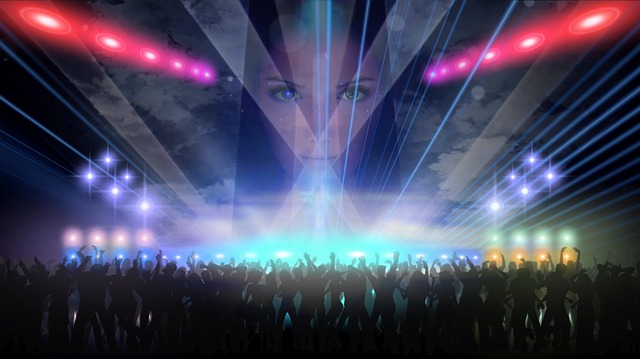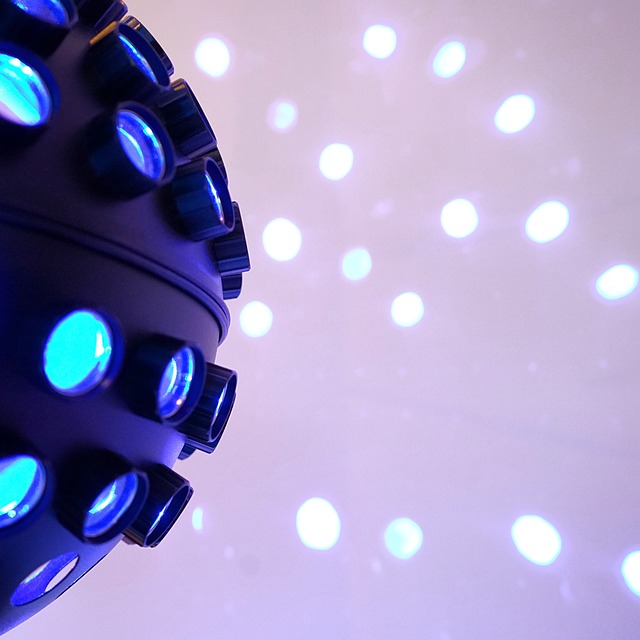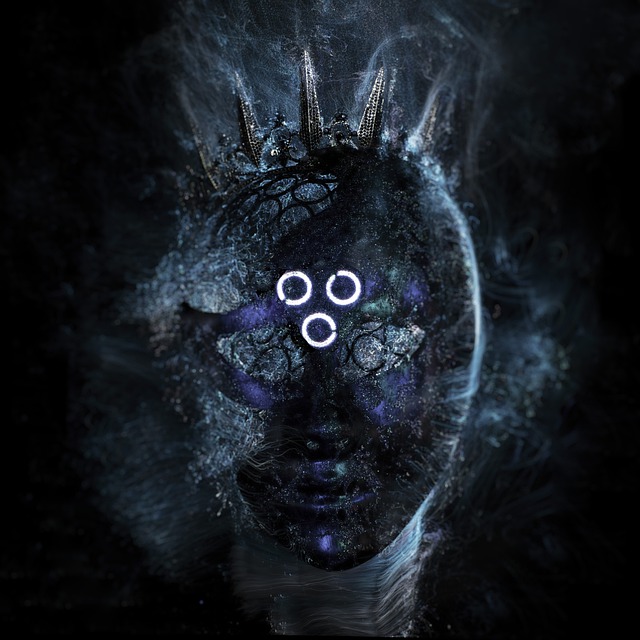
‘For the heads’: An oral history of EXAT, Detroit’s legendary ’90s experimental and ambient techno night at Zoot’s Coffeehouse – Detroit Metro Times
Photo courtesy of Clark Warner
DJ Clark Warner perfoms at Zoot’s Coffeehouse.
Detroit’s underground dance events of the ’90s are justly storied — but one of the decade’s most consistently attended and long-term impactful was small, insider-heavy, and not intended for dancing at all.
EXAT — Experimental and Ambient Techno — ran every Monday night at the legendary Zoot’s Coffeehouse. Founded in late 1992 by Dan Solomon, who three years later would sell the business to two of its employees, Aaron Anderson and Scott Michalski, Zoot’s hosted performances by everybody from His Name Is Alive to Windy & Carl, Sleater-Kinney to the Mountain Goats. And beginning around 1994 — nobody remembers the precise date — until the place closed early in the fall of 1997, EXAT — whose final night was that Sept. 29 — decisively thickened the Zoot’s musical pot.
EXAT’s promoter was Adriel Thornton, already a seasoned party-thrower who’d put together the ambient side rooms for legendary events like Kevin Saunderson’s Journey Through the Hardcore (State Theater, Sept. 6, 1992); he also operated Space 19, a boutique for his own designs, as well as a frequent rave map point, below Zoot’s. The event’s regular DJs, Carlos Souffront and Clark Warner, have gone on to illustrious careers behind the decks. EXAT also hosted sets by a slew of electronic-music royalty both local (Carl Craig, Richie Hawtin) and international (Autechre). This was where the scene’s movers and shakers congregated after a weekend of partying, often to strategize.
EXAT attracted a listening crowd, or was a social crowd with the music in the background: “At was at times was both,” says Thornton. It was a lot more besides, as he and several residents and regulars attest.
Photo courtesy of Clark Warner
EXAT was small, insider-heavy, and not intended for dancing at all.
“It was legit the only coffeehouse in downtown.”
PATRICK RUSSELL [DJ]: Zoot’s was great. It was just a little coffee shop near the Wayne State University campus.
CLARK WARNER [EXAT resident DJ]: If you’ve seen [the documentary] Searching for Sugar Man, it looks like the house that Rodriguez lives in. It was one of these classic Detroit Woodbridge homes, which was the area of Wayne State campus.
AARON ANDERSON [Zoot’s employee, 1993-95, and co-owner, 1995-98]: For years, I thought of it as a leftover thing from beatniks and hippies. I remember there being one in Birmingham, called the San Francisco Coffee Shop. But there weren’t many in the city.
ADRIEL THORNTON [EXAT promoter]: At the time I was going to Wayne State. It legit was the only coffeehouse — I think that was it, I literally cannot think of another one — that was around, at least in downtown.
WARNER: You went to the coffeehouse to either read a book or pick up someone. It wasn’t a singles bar, but at the same time it was a place where cool people were going to hang out, because who the fuck wants to go spend $3 on a cup of coffee?
THORNTON: I remember at the time trying to explain to somebody what a coffee shop was: “It’s not just coffee.” I would go there to read magazines — go to a bookstore and then sit there and flip through my Wallpaper.
COLLEEN DURENO [Zoot’s employee; to Detroit Is It, October 2019]: Zoot’s opened as a coffee shop, but I don’t remember much coffee ever being served. There was no liquor license yet there was lots of beer and occasionally other things.
SEAN HORTON [DJ]: The owner was friends with everybody. There were a lot of college students. It held about 50 people.
ANDERSON: I think I saw a sign that said [capacity] was 71. I know we fit upwards of a hundred and a half in there for concerts.
DURENO: The property was worthless and people with money didn’t often venture down to that area.
CARLOS SOUFFRONT [EXAT resident DJ]: It was a house. You’d go upstairs to the front door. Then you would walk straight alongside the staircase to order coffee. And to the right, in the front of the house, was the stage, which was elevated probably four or five inches from the main floor. It was an old, creaky wood floor.
SARAH VIDOSH [EXAT regular]: A lot of furniture — mismatched tables and chairs, bookshelves. Flyers everywhere.
ROB THEAKSTON [EXAT regular]: The coffeehouses’ other advantage was that they were automatically all-ages venues.
ANDERSON: I think there was a need in the city, across multiple scenes, for an alternate venue that was all ages and a little bit more comfortable and non-traditional.
VIDOSH: There was a wide range of music that was there.
THORNTON: It was poetry readings, it was shows — it was just a variety of things that were ongoing.
ANDERSON: There was jazz on Sundays, maybe an occasional rock band here, some acoustic things, when I started — definitely not DJs.
Photo courtesy of Clark Warner
EXAT promoter Adriel Thornton (left) and Greg Campbell.
“Twenty-five dollars a night.”
VIDOSH: It was really awesome that Aaron was so open to everything. That period of the [Cass] Corridor was like the Wild West.
ANDERSON: I’d just come back from a cross-country road trip. It was like, “I want to work here.” And I sort of hung around long enough until they hired me. It was still weekly potluck dinners, things like that.
SAM FOTIAS [promoter]: It was very diverse groups of people hanging out: the rock people, the art people, the college kids.
VIDOSH: I don’t think that there was a major distinction between the indie kids and the techno kids. A lot of the indie kids that were in bands eventually wound up at dance parties anyway.
ANDERSON: I grew up in Detroit. The techno scene is just part of it. I went to school dances and they were playing Model 500. I owned [Cybotron’s 1981 debut] “Clear” on 12-inch as a kid. I knew that stuff.
I also went to school with Sam Fotias. We both went to Cass together. He had been, early on, of the world that moved from Detroit techno to the rave scene. One time when we were catching up, he’s like, “I do these parties. Come on down and check them out. It’s the new thing. I’ll get you in the door.” I grew up with techno, I had been exposed to the rave scene and knew people in it.
Dan Solomon started the coffeehouse, ran it for about three or four years, and decided that he wanted to do something else. I think at the time he wanted to try and get an architecture degree.
THORNTON: Dan’s roots were more in the punk scene. Zoot’s was his dog.
ANDERSON: I started working there late ’93. I worked there for about a year and a half, and then Dan offered it to his employees — so Scott Michalski and I went for it and got it — it was ’95. For $10,000 and a monthly payment and assumption of all debts, Scott and I took over. Our parents lent us the money.
THORNTON: I remember me and Clark Warner sitting. I said, “Hey, what about an ambient night?” As much as I was a fan of the dance-floor stuff, I was really into ambient. So was Clark. I may have played around with the name, like “The Study” or something like that. It was really about bending your ear towards those sounds. In what we would call “the Library,” which was the second room on the way to the bathroom, there was a TV, so we would also play like movies back there, just for visuals. The whole point was to come and chill.
SOUFFRONT: He booked Clark Warner and myself as the residents.
ANDERSON: From the get, I think it was pretty well attended. It had its own built-in crowd. The whole party scene in Detroit was so alive at that time. In the Midwest, rave was at its peak.
THORNTON: I was already, at that point, a pretty established rave promoter in the city, so it made sense: We all loved ambient music at the time. And Zoot’s was all about it. It really did cater to all the undergrounds.
ANDERSON: It was $25 to get the room for a night. Basically, anybody with a good or interesting idea could book there for $25 a night.
Doug Coombe
Adriel Thornton and Aaron Anderson outside the former Zoot’s.
“EXAT was for the heads.”
SOUFFRONT: Adriel was more an idea guy. He doesn’t really have any gear. So I brought the gear. I would always bring through turntables and a mixer, and I’d bring a CD player as well. You couldn’t adjust the pitch, but this is ambient, so it wasn’t making really rigorous beat-matching mixes or anything.
ROBERT GORELL [EXAT regular]: Carlos was the sweetest but also most intimidating guy to me, because his knowledge was totally encyclopedic even back then. Every time I went there, I heard tons of music I’d never heard before. That was also the beginning of when Clark was doing operations for M_nus. EXAT was for the heads.
DEREK PLASLAIKO [DJ]: Whenever Clark would play down there was always pretty memorable. He seemed to have themes going on. It wasn’t just ambient — he would throw in some old classic rock thing that was really mellow.
THEAKSTON: They would play Biosphere and Higher Intelligence Agency. But then they would turn around and play Derrick May and Ten Second Dynasty, another Detroit space-rock band. And then Clark would drop something like the Beatles’ “Flying,” from Magical Mystery Tour.
THORNTON: There might be ten of us there, lounging and really listening to it, and someone coming up to the decks, looking to see what that record was, and then having a conversation with Carlos about it for ten minutes.
Photo courtesy of Clark Warner
DJ Scott Zacharias.
RUSSELL: That’s where you would see kids from the weekend sometimes. They’d be hanging out on the steps there.
HORTON: It was the first time I really felt as though you could exchange ideas musically, you could communicate socially. You’re not in a loud club or an environment when you can’t talk.
VIDOSH: I remember making out with Derek Plaslaiko one day in a back room.
PLASLAIKO: I remember making out with Sarah Vidosh in the bathroom several times. That was always like, “Yeah, what the hell, let’s go make out.”
ANDERSON: There is cool footage of Zoot’s that a woman uploaded to YouTube. Julie was a coffee shop local who was an obsessive videotaper. She went in and taped like, an entire night just walking around EXAT. She was a film geek who hung around the coffee shop and if there was something interesting going on, would bring her camera and tape it.
MATTHEW HAWTIN [DJ]: The ambient coffeehouse thing — we did a coffeehouse night in Windsor, and there was also Zoot’s in Detroit. There was one in Toronto, too — that seemed to be a place where that music was acceptable but it was a Monday or Tuesday night, after the weekend, everybody wanted to get together again, not have a crazy night but just congregate. I guess maybe people would just Facebook about it now.
THEAKSTON: It was all these little pockets of different club nights — Mad Hatter and Zoot’s — from 1994 to 2004 that were just as important to continuing the whole Detroit narrative as the big clubs like Motor. Motor had its place, but Motor wasn’t necessarily a place where you could be innovative.
SOUFFRONT: EXAT became a venue for anyone who was in town playing that weekend from out of town, who still happened to be in town, we would invite and say, “Hey, if you if you want to play to a sitting audience, you can.”
DAVE WALKER [MW-Raves post, May 14, 1996]: Why pay big bucks to see “DJ Trance” or whatever in a roller rink thirty miles north of the city when you can see guys like Stacey Pullen, Claude Young, Carl Craig, Mike Huckaby, etc., playing at Zoot’s or the Shelter or Galligan’s for $2 to $5 during the week?
PLASLAIKO: Kenny Larkin played live down there one time.
THORNTON: Another standout for me was, Autechre came by to play after they played another promoter’s party that weekend. From what I understand, they actually stayed because they wanted to come to EXAT and play.
PLASLAIKO: I remember talking with Autechre that night for a while. I asked a stupid question: “Do you have any advice for aspiring young producers?” And they told me, “Yeah — buy a piece of gear, learn it for months on end, and when you think you’ve learned everything else, go learn a couple more months. And then when you think you’ve learned all everything else, again, go a couple more months after that — and then buy another piece of gear.” That scared me off of production for a few years.
Photo courtesy of Clark Warner
DJ Clark Warner perfoms at Zoot’s Coffeehouse.
“A super-important rave meeting.”
BRENDAN ROHAN [writer; Orbit, April 1995]: On March 5, 1995, I was swept up in the massive police raid that netted hundreds of kids and a smattering of drugs. My crime? Trying to have a good time. . . . The week before the event, the Detroit News ran a story by freelance writer Irvin Jackson, detailing drug use and stoned-out, sexually promiscuous minors partying at a 1315 Broadway party, a block away from the 1515 Broadway site. . . . TV2’s Amy Jacobsen reported that she was broadcasting from an underground “rave” party just days after the bust. That report, complete with downward, dark, and jerky camera angles, was actually filmed at Zoot’s Coffeehouse during normal hours.
FOTIAS: Every Monday, we had our Detroit promoter meetings there. It would be me, Dean [Major], Adriel; Rich would come every once in a while; our buddy Jason Vetrano who did parties, our other buddy Alan Bogl. Because there wasn’t email, Facebook, or message boards, that’s how people convened and talked about, “I’ve got these dates,” or, “What are we going to do about this police situation?” — face to face.
VIDOSH: I’ll never forget: Richie Hawtin came to an EXAT on Monday for a super-important rave meeting between all of the promoters. He was about to sit down and said, “You should be in here, Sarah.” I was trying not to fucking smoke the floor when I ran in there.
THORNTON: After the raid, Channel 2 — I’m not sure if they hit me up or if they hit Zoot’s up. But either way, we knew they were coming. And I think we might have been having a quote-unquote “scene meeting.” I remember Richie there. Matt was there, Sam [Fotias], all the promoters in the city; there was quite a few DJs. I distinctly remember us coming up with a plan right there, really, to not discuss our scene with them. I potentially would be the spokesperson. When we saw the final piece, they legit tried to make like they were at a rave. It was so stupid. It was like, “Well, that’s some fucking creative editing right there.”
Photo courtesy of Clark Warner
“It was one of these classic Detroit Woodbridge homes, which was the area of Wayne State campus.”
“But that’s only sustainable for so long.”
THORNTON: Zoot’s was still one of those things where you kind of had to know what it was. And it catered to such a niche crowd — the ravers, some punk kids, and hip-hop kids. But that’s only sustainable for so long.
ANDERSON: I was a terrible business owner. We’re 23-year-old business owners, you know? We knew the ins and outs, at least, of how to make drinks and have events and promote. But the other end of it was not good. I was pretty wild in my twenties. That didn’t really mix it up as a business owner.
THORNTON: I just remember having this conversation with Aaron at one point about him being annoyed because they kept finding spoons in the bathroom, burnt up from the bottom.
ANDERSON: EXAT was active right until the end.
VIDOSH: I can’t believe I’ve had these friends for almost 30 years. Those same people are the people that I was going to EXAT to see.
PLASLAIKO: That’s how I got closer with all these people. These people are still family to me.
Encore: May 2000
RUSSELL: Carlos Souffront’s three-hour set [at DEMF 2000; on Souffront’s YouTube page] — he was playing the Underground Stage and it rained pretty heavy all morning. Fluorescent lights were on the whole time. Carlos played the broadest spectrum of what he was about, front to back. His EXAT stuff from Zoot’s, B-12, super-pretty early UK stuff. It kept getting weirder and weirder and weirder and weirder, and the last 45 minutes were all jams: Kraftwerk, Liasions Dangereuses, Boards of Canada — it became this super-intense thing. It definitely was my favorite set of the weekend.
Stay connected with Detroit Metro Times. Subscribe to our newsletters, and follow us on Google News, Apple News, Twitter, Facebook, Instagram, Reddit, or TikTok.



